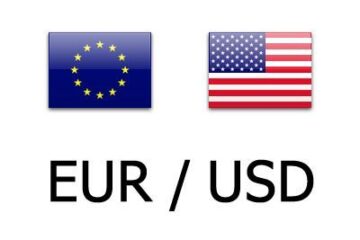Those hoping to escape the grips of big brother through cryptocurrencies may not find the financial freedom they were expecting by the time the new rules are laid out.
For many investors who have bought into bitcoin, the cryptocurrency doesn’t just represent a once-in-a-lifetime investment opportunity, it also represents financial autonomy.
But a digital currency that can be transferred peer to peer without the oversight of banks or government regulatory agencies is attractive to both law-abiding investors and bad actors alike.
For weeks news outlets have reported that President Joe Biden and the White House will be unveiling their framework for regulation of cryptocurrencies soon. And given recent events with our neighbors to the north, crypto investors have a right to be nervous.
No matter where one stands on the political spectrum when a Western democracy with a free-market economy begins tightening controls on banking activity everyone should take notice.
This week, Canada Prime Minister Justin Trudeau enacted the country’s Emergencies Act in response to a trucker protest that has clogged important U.S. trade arteries and has caused nuisance and disruption in the capital city of Ottawa.
The Emergencies Act allows Trudeau’s government to order financial institutions, without court orders, to freeze personal and corporate bank accounts connected to the protest.
“This is about keeping Canadians safe, protecting peoples’ jobs and restoring faith in our institutions,” Trudeau said during a press conference announcing the implementation of the new rules.
While this example may be in the extreme, it does offer a glimpse into just how much power governments can have over financial transactions in their country.
The U.S Will Be Tightening Crypto Regulation Soon
Those hoping to escape the grips of big brother through cryptocurrencies may not find the financial freedom they were expecting by the time the new rules are laid out.
Biden is expected to issue an executive order next week directing agencies across the government to study cryptocurrencies and a central bank digital currency, and to come up with a government-wide strategy to regulate all digital assets, Yahoo reported.
On Feb. 17, the Justice Department announced the appointment of Eun Young Choi as the first Director of the National Cryptocurrency Enforcement Team (NCET).
“The NCET will serve as the focal point for the department’s efforts to tackle the growth of crime involving these technologies,” said Kenneth Polite Jr., the assistant attorney general of the DOJ’s crime division.
Meanwhile, the FBI is forming its own cryptocurrency alphabet team. The Virtual Asset Exploitation Team (VAXU) will “provide equipment blockchain analysis, virtual asset seizure and training to the rest of the FBI,” according to Lisa Monaco, deputy U.S. attorney general.
That unit will be folded into the NCET.
This week, Treasury Undersecretary Nelli Liang told the Senate that the Financial Stability Oversight Council (FSOC), which was created after the 2008 market crash to monitor risks to the financial sector, is studying the prospect of risks so-called stablecoins pose to financial systems and is taking steps to regulate them.
Tighter Regulation Could Spur Crypto Adoption
Regulation advocates would point out that if you are not using cryptocurrencies to do anything illegal then they have nothing to worry about.
Counterintuitively, tighter regulations could spur even greater investment in digital assets as the government gives the space a sense of legitimacy through its involvement.
India, for example, has seen an explosion in crypto interest since the country issued a 30% tax on profits from crypto trading.
WazirX, India’s largest crypto wallet, has seen daily sign-ups on its platform jump almost 30% since February 1 when the government announced the tax, Bloomberg reported.
So there is evidence that government intervention won’t be the end of the crypto party.
For or against, ready or not, crypto regulation is coming as soon as next week and investors should be ready to play by a set of new rules when the rules do come down.


